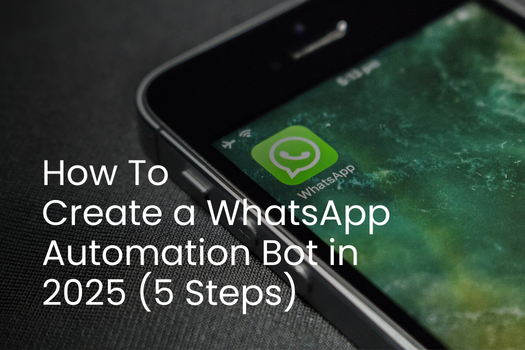Success in the changing world of B2B SaaS marketing requires a planned and flexible approach to content production, SaaS calendar production, lead generation, and b2b content syndication. This thorough book is a must-have resource for marketers, guiding them through the critical phases of performing a content audit customized exclusively for SaaS organizations. Recognizing that content is the key to digital success, this book equips marketers to systematically review and improve their SaaS content marketing strategy, guaranteeing resonance with target audiences in an ever-changing market.
As the B2B SaaS ecosystem evolves, the book serves as a compass for navigating the complex terrain of Pay-Per-Click (PPC) and Pay-Per-Lead (PPL) campaigns. It gives marketers the knowledge they need to make educated decisions by delving into the nuances of these two models. It offers insights on optimizing SaaS account management practices, ensuring marketers can effectively nurture client relationships and drive growth within their accounts.

1. The Power of Content Audits for B2B SaaS Organizations
we'll look at how content audits might help B2B SaaS companies improve their reputation and focus. We'll look at the most prevalent reasons why most content marketers have never performed a content audit and explain key pre-audit processes, including audience research and goal alignment. The advantages of doing a content audit will also be discussed, from analyzing effective techniques to increasing SEO authority.
By considering saas content marketing examples throughout this discussion, we aim to provide practical insights tailored to the specific needs of B2B SaaS companies, offering actionable strategies for optimizing their content marketing approach.
2. Dos and Don'ts of B2B SaaS Content Audits
In this, prioritize clear objectives before initiating a content audit. Explore beyond blogs, encompassing lead magnets, CTAs, and social proof. Emphasize the importance of defined goals for effective content assessment. Readers will gain insights into optimizing their B2B SaaS content through a provided free template.
3. When to Conduct a Content Audit
Identify warning signs like outdated messaging, poor design, inaccuracies, re-brands, and content visibility issues. Stress the continual need for monitoring the content library to maintain relevance and effectiveness.
4. How to Conduct a Content Audit - Determining WHAT
Guide readers on creating an organized audit process with a detailed spreadsheet. Highlight categories such as conversions/downloads, creation date, and website location. Offer practical tips for transforming audit findings into actionable insights for future content creation.
5. B2B SaaS PPC vs. PPL Understanding the Channels
Introduce the nuances of PPC as a pay-per-click advertising model. Explore the mechanics of B2B SaaS PPC campaigns, including ad ranking and best practices. Detail five core B2B SaaS PPC lead generation platforms: Google Ads, Bing Ads, Capterra, LinkedIn Ads, and TikTok for Business.
6. High-Level Metrics for B2B SaaS PPC Campaigns
This delves into indispensable metrics for B2B SaaS PPC campaigns, including impressions, clicks, click-through rate (CTR), cost per click (CPC), and conversion rate. Beyond merely highlighting these metrics, the emphasis is on the critical importance of tracking and analyzing them to optimize PPC campaigns effectively. Understanding these high-level metrics provides marketers with actionable insights, enabling them to refine strategies, enhance targeting, and maximize the return on investment in the competitive landscape of B2B SaaS advertising.
7. When to Use PPC for B2B SaaS
This segment strategically identifies scenarios where PPC becomes the linchpin of success in B2B SaaS, particularly in product-led growth and low Average Contract Value (ACV) offerings. Delving into the role of PPC in bolstering brand awareness and reaching specific audiences with pinpointed pain points, it provides actionable insights for marketers to align their PPC strategies with overarching business objectives. For optimal results, consider collaborating with specialized SaaS content marketing agencies to refine and execute a targeted PPC approach, ensuring your brand stands out in the competitive landscape.
8. Understanding PPL Campaigns
Here, the focus shifts to the Pay-Per-Lead (PPL) model, delineating its nuances and exploring key platforms like Software Advice, Business.com, SoftwareSuggest, and MVF (Expert Market). Beyond mere exploration, it provides in-depth considerations when building a PPL campaign, encompassing aspects such as lead qualification, strategic use of filters, pricing strategies, and the critical role of transparent refund policies. This collaborative approach ensures a well-rounded PPL strategy that aligns with your SaaS content marketing playbook.
9. PPL Campaign Metrics for Success
Readers are guided through the intricate landscape of tracking metrics for PPL campaigns, including cost per lead (CPL), lead-to-opportunity conversion rate, sales cycle length, average deal size, and overall Return on Investment (ROI). A thorough comparison between PPL and PPC campaigns is drawn, shedding light on prospect awareness and tracking capabilities, offering marketers a nuanced understanding to optimize their lead generation efforts in the B2B SaaS domain.
10. Choosing Between PPC and PPL for B2B SaaS Lead Generation
The conclusion highlights the differences in payment methods, setup, prospect awareness, and tracking between PPC and PPL and provides actionable insights into when to strategically deploy each based on budget constraints and overarching goals. A recommended phased approach is advocated, suggesting a starting point with PPL for targeted lead acquisition, followed by the phased incorporation of PPC, ensuring a well-balanced and effective lead generation strategy in the dynamic B2B SaaS landscape.
Conclusion
This comprehensive guide is an indispensable resource for B2B SaaS marketers, providing the essential knowledge and tools to conduct impactful content audits and make strategic decisions between PPC and PPL campaigns. In the dynamic landscape of B2B SaaS, where effective lead generation is paramount, this guide empowers marketers to navigate and harness the nuances of these two distinct strategies.
With a focus on content audits, marketers gain insights into evaluating and enhancing the effectiveness of their content, ensuring alignment with evolving industry standards and customer expectations.
The guide further delves into the dichotomy of PPC and PPL campaigns, elucidating the intricacies of each approach. By comprehending the unique strengths and considerations associated with Pay-Per-Click (PPC) and Pay-Per-Lead (PPL) models, organizations can make informed decisions tailored to their specific goals and budget constraints. This knowledge is pivotal in optimizing lead generation efforts, as marketers gain a nuanced understanding of prospect awareness, tracking capabilities, and strategic deployment based on the dynamic interplay of budget and objectives.
Related Blogs
We explore and publish the latest & most underrated content before it becomes a trend.
6 min read
How to Build a WhatsApp Chatbot in 2025: A Step-by-Step Guide
By Sabah Noor10 min read
What is Account-Based Marketing? ABM Strategy, Benefits, etc.
By Nishant Ahlawat
Subscribe to Saffron Edge Newsletter!











